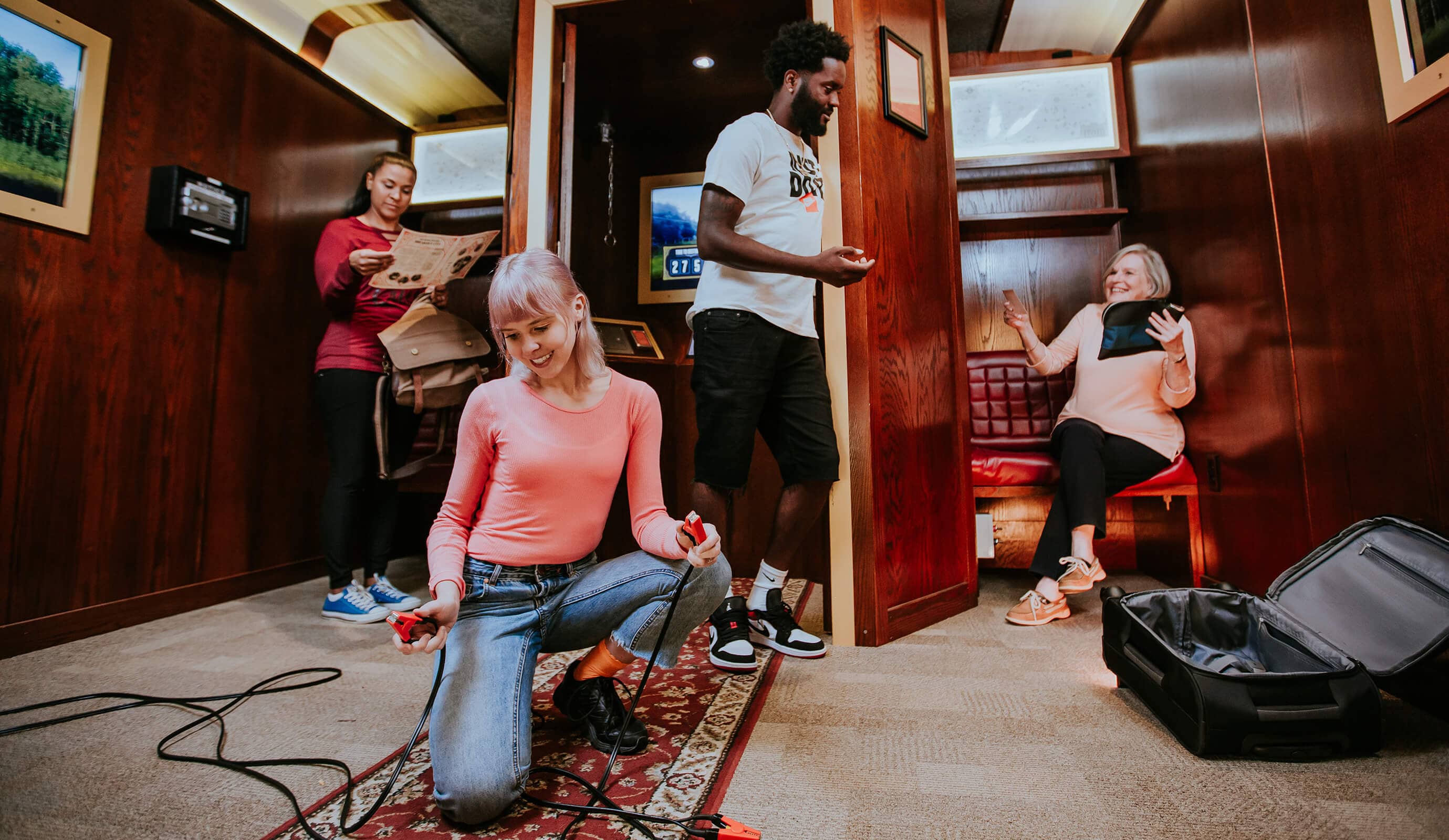Minneapolis Escape Room-- Exciting Puzzle Challenges for All Ages
Minneapolis Escape Room-- Exciting Puzzle Challenges for All Ages
Blog Article
Team Techniques: How to Work together Effectively in a Getaway Space
Groups should proactively pay attention to each member's understandings, designate duties that line up with individual staminas, and maintain normal check-ins to guarantee emphasis and stop redundancy. By fostering a setting that values cohesion and flexibility, teams can dramatically heighten their performance and success rates.
Establish Clear Interaction

To assist in clear interaction, it is vital to mark a central factor of call for information dissemination. Quick, focused updates from each team participant can maintain the group notified without frustrating them with information.

Designate Roles Purposefully
While clear interaction sets the structure for effective teamwork, appointing functions strategically makes sure that each employee's toughness are utilized properly. In a getaway area situation, the time-sensitive and complex nature of obstacles necessitates an efficient method to job delegation. By determining and leveraging specific proficiencies, groups can enhance their analytic abilities and boost general efficiency.
A person with an eager eye for information might excel in discovering concealed things, while a sensible thinker can be better suited to resolving challenges. This function usually requires strong organizational and interpersonal skills.
2nd, make certain that functions are adaptable and adaptable. As brand-new difficulties arise, the team needs to have the ability to pivot, reapportioning tasks as needed. This versatility assists preserve momentum and avoids bottlenecks that might occur due to rigid role assignments.
Ultimately, a strategic approach to role assignment not just optimizes the toughness of each group member however also fosters a natural setting, driving the team towards an effective retreat.
Use Diverse Skills
Identifying and taking advantage of the diverse abilities within your team can considerably boost your performance in an escape space. Each staff member brings distinct strengths to the table, and properly leveraging these abilities can expedite analytic and boost general efficiency. A team participant with solid analytical abilities might stand out at decoding complicated codes or patterns, while an additional with keen observational capabilities might rapidly identify surprise clues that others may forget.
Efficient interaction is essential to making use of these diverse skills. Urge staff member to voice their insights and concepts promptly, making certain that all prospective solutions site here are considered. This inclusive method fosters a vibrant environment where imagination and crucial thinking can prosper. Furthermore, appointing tasks that line up with each participant's strengths can avoid bottlenecks and ensure that progress is continual.
Furthermore, diversity in skills frequently converts to diversity in assuming designs, which is invaluable in an escape room setup. While some obstacles might need rational reasoning and accuracy, others could take advantage of imaginative and lateral thinking. By identifying and leveraging this variety, teams can address a broader series of difficulties better, thereby raising their opportunities of a successful escape.
Manage Time Properly

First, assign preliminary mins for a fast survey of the area. Recognize noticeable problems and separate jobs based upon team members' strengths, making sure that nobody is idle. Set internal time checkpoints to evaluate progression occasionally; as an example, goal to have half the Resources challenges resolved by the mid-point of the game. This practice can help maintain the group focused and avoid time from slipping away unnoticed.
Furthermore, avoid passage vision. If a problem is taking as well long, rotate staff member or proceed to one more difficulty, returning later on with fresh viewpoints. Communication is paramount-- maintain everybody upgraded on fixed puzzles and continuing to be tasks to avoid repetitive efforts.
Last but not least, use any kind of hints or clues moderately but purposefully - best Look At This escape room. Knowing when to request for help can conserve important time. By sticking to these time administration concepts, teams can considerably boost their chances of an effective and pleasurable retreat room experience
Debrief and Mirror
Reflection is a crucial element of group development and renovation in the context of getaway rooms. Once the challenge is completed, whether effectively or otherwise, it is critical for the group to engage in an organized debriefing session. This process enables staff member to examine their efficiency, recognize staminas, and pinpoint locations for improvement.
Begin the debrief by reviewing what worked out. Highlight particular circumstances of reliable interaction, problem-solving, and partnership. Identifying these positive behaviors strengthens them and urges their rep in future challenges.
Discuss moments of confusion, miscommunication, or ineffective strategies. Encourage an open and constructive dialogue where group participants can share their viewpoints without anxiety of objection.
Verdict
In conclusion, effective partnership in an escape area is asserted upon clear interaction, calculated role jobs, the efficient utilization of varied skills, and proficient time monitoring. By creating a natural and adaptive group environment, the chance of effectively addressing challenges and attaining the goal of running away the space is dramatically improved.
Report this page